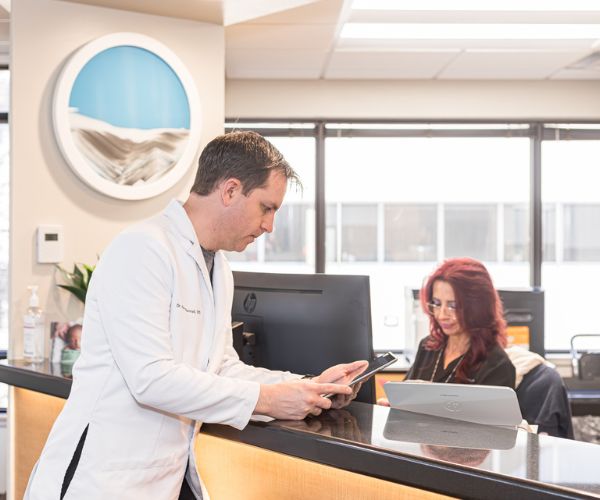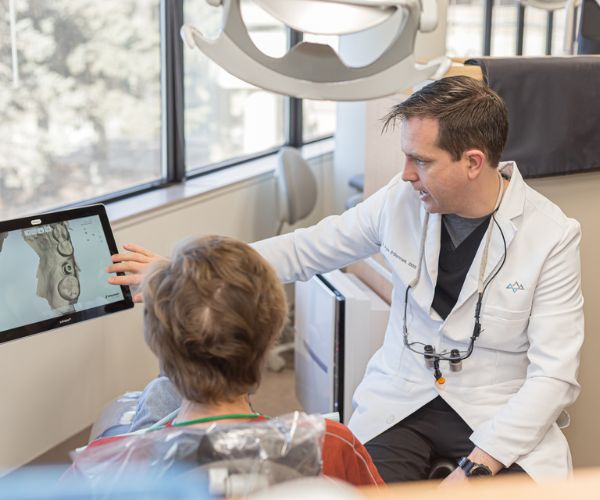The Importance of Regular Dental Checkups

The Importance of Regular Dental Checkups in Highlands Ranch, CO
Maintaining your oral health goes beyond just brushing and flossing daily. One of the most important steps in keeping your teeth and gums in optimal condition is visiting your dentist for regular checkups. At Alpine Vista Dental, we stress routine checkups to keep your smile healthy and prevent serious issues. But why exactly are these checkups so crucial?
We’ll cover why regular dental checkups are essential for your health and well-being. Whether you’re overdue or on schedule, knowing the benefits of routine care can help you prioritize your visits.
1. Early Detection of Dental Problems
Regular checkups are key for catching dental issues early. Cavities, gum disease, and other oral health concerns can develop gradually, often without any obvious symptoms. By the time you notice pain or discomfort, the problem may be much more severe, requiring extensive treatment.
During a dental checkup, your dentist will thoroughly examine your teeth, gums, and overall oral health. X-rays may also be taken to look for hidden issues like cavities between teeth, bone loss, or abscesses. Early detection helps avoid complex treatments and stops minor issues from worsening.
2. Preventive Care and Professional Cleaning
Even with diligent home care, plaque and tartar can build up on your teeth over time. Brushing and flossing help, but they can’t reach all areas, like between teeth and the gumline. This is where professional cleaning comes in.
During a checkup, your hygienist will clean plaque and tartar your toothbrush can’t reach. Regular cleanings are crucial for preventing gum disease, tooth decay, and bad breath. Additionally, dental cleanings allow for the removal of stains, helping to keep your smile bright.
3. Gum Disease Prevention
Gum disease (or periodontal disease) is a common condition that affects many adults, but it can often go unnoticed in its early stages. Bleeding or swollen gums may seem normal but can signal serious problems.
At your checkup, your dentist will look for gum disease signs like inflammation or recession. Gum disease is a leading cause of tooth loss in adults, but it is preventable with timely intervention. Early-stage gum disease can often be treated with a professional cleaning and improved home care. However, if left untreated, it may require more intensive treatments such as scaling and root planing.
4. Oral Cancer Screening
Oral cancer is a serious disease that can often go undetected until it has progressed to later stages. Dental visits include an oral cancer check for unusual growths in your mouth or throat. Detecting oral cancer early increases the chances of successful treatment, making these screenings a vital part of your dental checkups.
Your dentist will check for lumps, bumps, or sores that could indicate cancer. Early diagnosis of oral cancer makes treatment easier, so regular screenings are essential.
5. Maintain a Beautiful Smile
Regular dental checkups do more than just keep your teeth healthy—they also help you maintain an attractive smile. Your dentist can evaluate your smile and suggest treatments to enhance your appearance. Regular checkups help address cosmetic issues early, keeping your smile bright and beautiful.
Checkups help keep your teeth aligned and cavity-free for a more attractive smile. Your dentist ensures your crowns and fillings remain in good condition.
6. Overall Health and Well-being
Your oral health is closely linked to your overall health. Poor oral health can lead to systemic issues like heart disease, diabetes, and infections. Gum disease, for example, has been linked to an increased risk of heart disease and stroke. Regular checkups keep your mouth healthy and reduce the risk of overall health complications.
During your checkup, your dentist can spot signs of other health issues in your mouth. For instance, conditions such as vitamin deficiencies, diabetes, and even certain types of cancer can have oral symptoms. Early detection during checkups allows timely referrals for proper treatment.
7. Peace of Mind
Finally, regular dental checkups provide peace of mind. Taking steps to protect your oral health helps reduce anxiety about dental issues. Routine visits can reduce dental anxiety and make care more manageable. Your dentist is there to help, building a positive, trust-based relationship.
Prioritize Your Oral Health Today
At Alpine Vista Dental, we are dedicated to providing the best dental care for you and your family. Regular dental checkups are an essential part of maintaining good oral health and preventing more serious issues in the future. As the best dentist in Highlands Ranch, CO, we are here to guide you through your dental care journey, offering preventive services, thorough cleanings, and early detection of problems.
Don’t wait for a problem to arise—schedule your routine dental checkup with us today! Call or visit Alpine Vista Dental to ensure a lifetime of healthy smiles.






